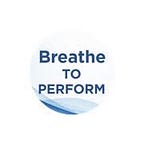How You Breathe Impacts How You Feel: Inhale Accordingly
By David J. Bidler
“When there’s chaos outside, we must create order within.” — Adam Robinson
We are a nation in quarantine. Our routines have been disrupted. Our social ties have been reduced to Zoom meetings. Our lives have been turned entirely upside down.
We are facing a chaotic upheaval of our normal lives.
Chaos outside can cause chaos within us.
Stress hormones rise and heart rates increase. Our stomachs ache. We perspire. We begin to feel anxious.
Our bodies reflect the sudden changes in the world by changing-at times chaotically-in accordance.
Chaos both internally and externally, however, is a dangerous combination. It obstructs clarity and blocks a clear paths towards order.
Fortunately, we come equipped with a very simple tool for controlling our internal state-regardless of what is happening in our external environment.
This tool is our breath.
In 2018 pioneering neuroscientist Dr. Jose Herreo and renowned neurosurgeon Dr. Ashesh Mehta published this paper showing how breathing at different paces, or simply paying attention to our breath, engages different regions in the brain.
This research adds new light to some of our oldest stress management and self-regulation practices.
From the ancient yogis and martial arts masters, to modern world-record holders and extreme athletes, breath training has been a staple in managing our physical, mental, and emotional state.
It serves as a powerful tool and accessible tool for managing how our brains and bodies respond to the challenges and transitions in our world at large.
Here are 3 simple tips to positively impact your brain and body through the power of your breath:
- ) Reduce or eliminate mouth breathing throughout the day.
The health benefits of nasal breathing are numerous. They include reduced stress and anxiety, a more robust immune system, and a 10–20% increase in oxygen utilization. This very small investment of pressing our lips together can make a big impact on our mental and physical health.
2.) Build a daily breathing practice.
Spending just two minutes focusing on your breath can help relax your body and brain while preparing you to meet the challenges of the day. Use the simple exercise below from our Breathe to Perform online course to help.
3.) Breathe Fully.
The following scenario is common. A person learns that breathing only into the upper chest can increase feelings of stress and anxiety.
They begin “belly breathing” to feel more relaxed.
However, the thorax-at least from the standpoint of pressurization-is like the tire of a car.
If you only inflated it partially you’d be hard pressed to have a smooth ride.
Breathing into the chest, the diaphragm, and the often neglected upper back simultaneously is the key to building a healthy breathing practice that improves how you feel and how you perform.
Due to the powerful connection between breathing and the brain the roughly 20,000 breaths that we take per day impacts our physical and mental health whether we are aware of this relationship or not.
When we gain awareness we acquire the ability to take control.
When we take control we gain to ability to influence how outside events impact our internal state.
Controlling how we respond to outside events may be the single most important skill of the 21st century. Fortunately, there is no better time to build that skill.
Restoring order in the mind and body-especially in times of chaos-takes practice.
Fortunately, a daily breath practice is one of the easiest to build as it requires us to add nothing to our day other than an awareness of what we are already doing.
Here’s to restoring order where we can with the tools that we come innately equipped with as we navigate the chaos together.
Warmly,
David and Lex, co-founders, Breathe to Perform
(If you’re interested in learning more about breathing for stress reduction, improved energy, or athletic performance just visit us at Breathe to Perform.)
David J. Bidler is the President of Physiology First, a nonprofit organization that shares solutions to stress and anxiety management with students across the globe.
In 2017 David founded Breathe to Perform to share the power of better breathing with individuals, families, workplaces, and teams.
David is the author of the upcoming book Breathe to Perform: 3 Simple Breathing Exercises to Reduce Stress, Improve Energy, and Peak Athletic Performance coming in April 2020.
David owns and operates The Distance Project: Strength and Conditioning, in Freeport, Maine.
Follow us @breathetoperform on Instagram for stress management strategies, breathing exercises, fitness training, and more!
